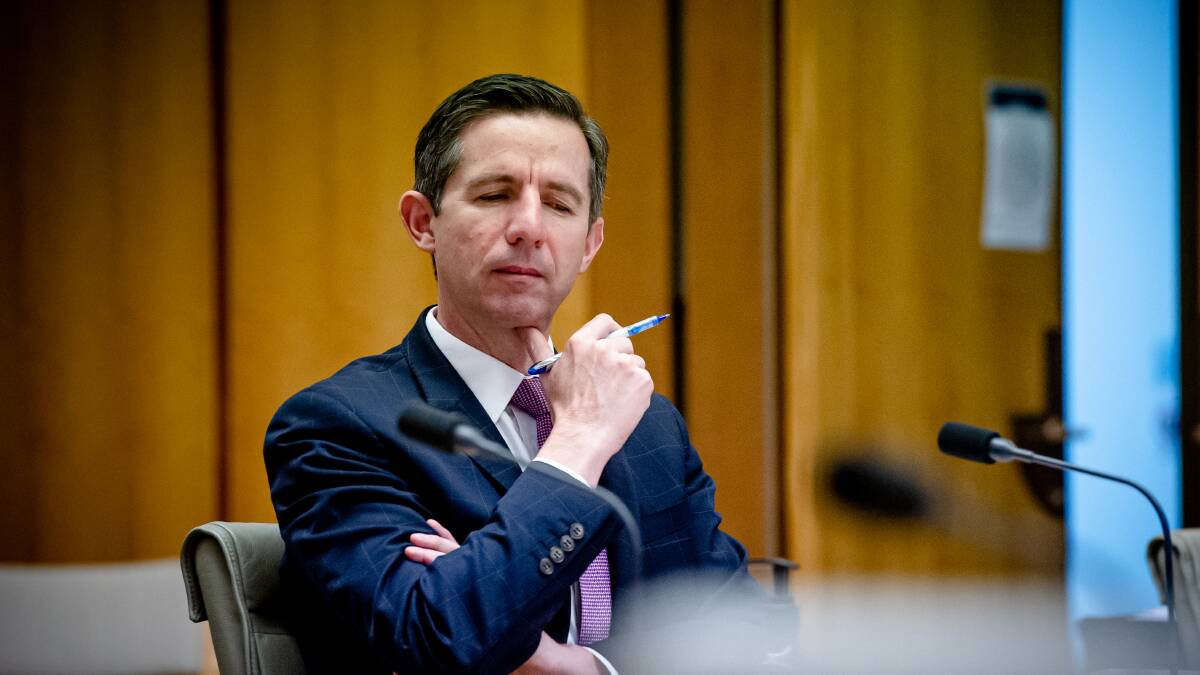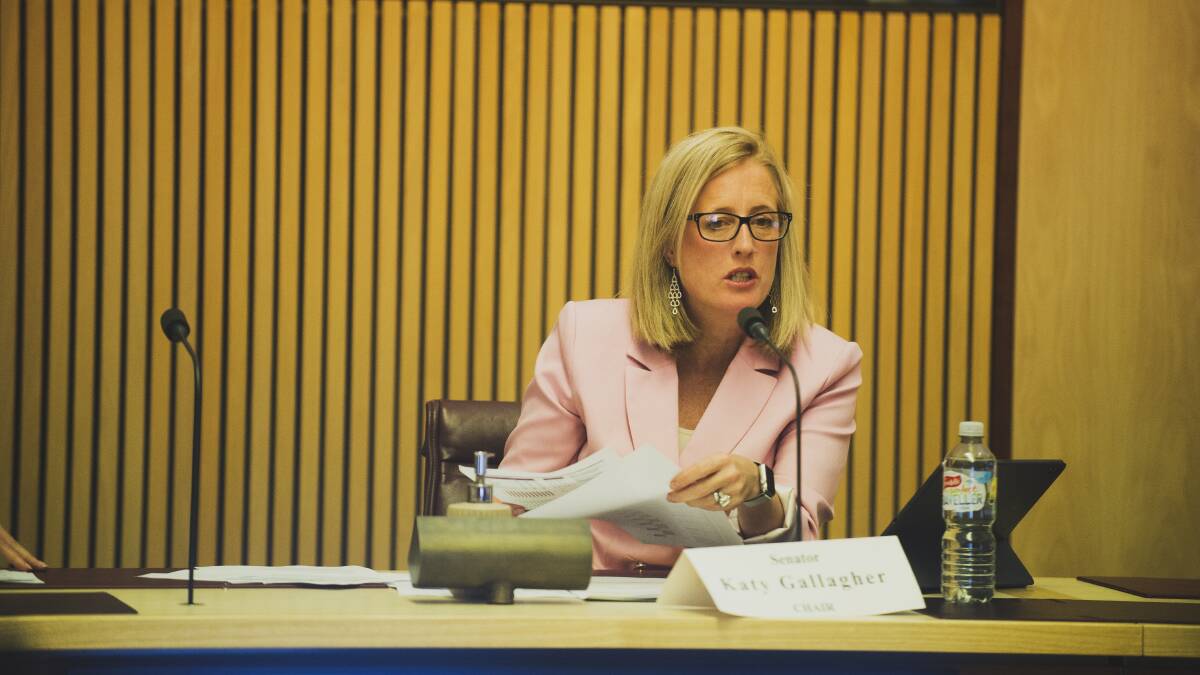
The federal government has downplayed damning findings of a probe into a community grants program, which awarded more than a million dollars to applications "assessed as ineligible".
Labor senator Katy Gallagher said it was more evidence the Coalition government had engaged in pork barrelling to win its third term of government in 2019, and demanded Finance Minister Simon Birmingham guarantee it would not happen again in the 2022 federal election.
But Senator Birmingham brushed off the claims, adding it was "commonplace" for governments to award funding to electorates from programs and Labor would do the same in its position.
He added ministers will rely on advice from their departments and agencies about what is appropriate in the caretaker period and made no unequivocal promise that there won't be a repeat of sports rorts.
"We're the government. We produce budget papers as the government and we appropriate funds in accordance with those budgets as the government," he said in a Senate estimates hearing on Tuesday morning.
"That is commonplace for governments and oppositions, whatever their political persuasions, to make those umbrella funding announcements and then to make different commitments about how those funds will be allocated."
The audit by Australian National Audit Office, released on Monday afternoon, found more than half of the grants were delivered without a "clear basis for the decision".
The $184 million Safer Communities Fund, which launched in 2016, offered grants to community and religious organisations in order to improve safety infrastructure and facilities.
But the office's probe found the program's applications were not determined in full accordance with the guidelines.
"For 54 per cent of approved applications involving 60 per cent of approved funding, the basis for the funding decision was either not clearly recorded or did not address the eligibility requirements and merit criteria published in the grant opportunity guidelines," the report found.
Five applications assessed as ineligible were awarded $1.12 million in grants funding, the report also revealed.
The Home Affairs Department agreed to make a number of changes to the program's design and operation, including a focus on ensuring applicants merits are met against eligibility, criteria and other relevant factors within the grant opportunity guidelines.
It said those who had received grants had reported "good outcomes" including an increase in perceptions of safety.

Senator Gallagher asked whether a decision by Assistant Minister for Home Affairs Jason Wood to approve $1.3 million in funding to applicants deemed ineligible, and after the funding had closed, upon visiting them in person was merit-based.
"When the Assistant Minister [Wood] visited a couple of applicants after the funding round had closed, then approved over a million dollars to five applicants, how is that in line with a merit-based assessment?" she said to Senator Birmingham.
"Are we at the point now where all of this is completely acceptable in government?"
Senator Birmingham said ministers and local MPs will advocate for programs to support communities based on their knowledge of those areas, and said Labor would do the same.
He said the ACT senator's line of questioning was a "double standard" Labor was not applying to itself.
Labor had promised $211 million in funding for projects in targeted seats, such as Braddon, Lyons and Leichhardt, the Finance Minister said.
But the Labor senator swiftly moved to dismantle the argument, saying the opposition wasn't making those promises from government, with money appropriated by Parliament, and without initially identifying where the funds would be spent.
Senator Gallagher said there was a $2.4 billion "war chest" in unallocated government spending available from a number of funds, including Building Better Regions ($279 million) and the Urban Congestion Fund ($848 million).
"You signed off those projects in government as ministers with no assessment, no recommendations, and they all went to seats you wanted to win, using funds you'd appropriated through the budget, with no transparency at all," she said.
"It looks to me like what the government has done is squirrelled away money into these funds, left it unallocated and then used those funds appropriated through the Parliament to pay for election promises."
Senator Birmingham said all of the funds in the programs may not have been appropriated, and had their funding stretched out over several years.







